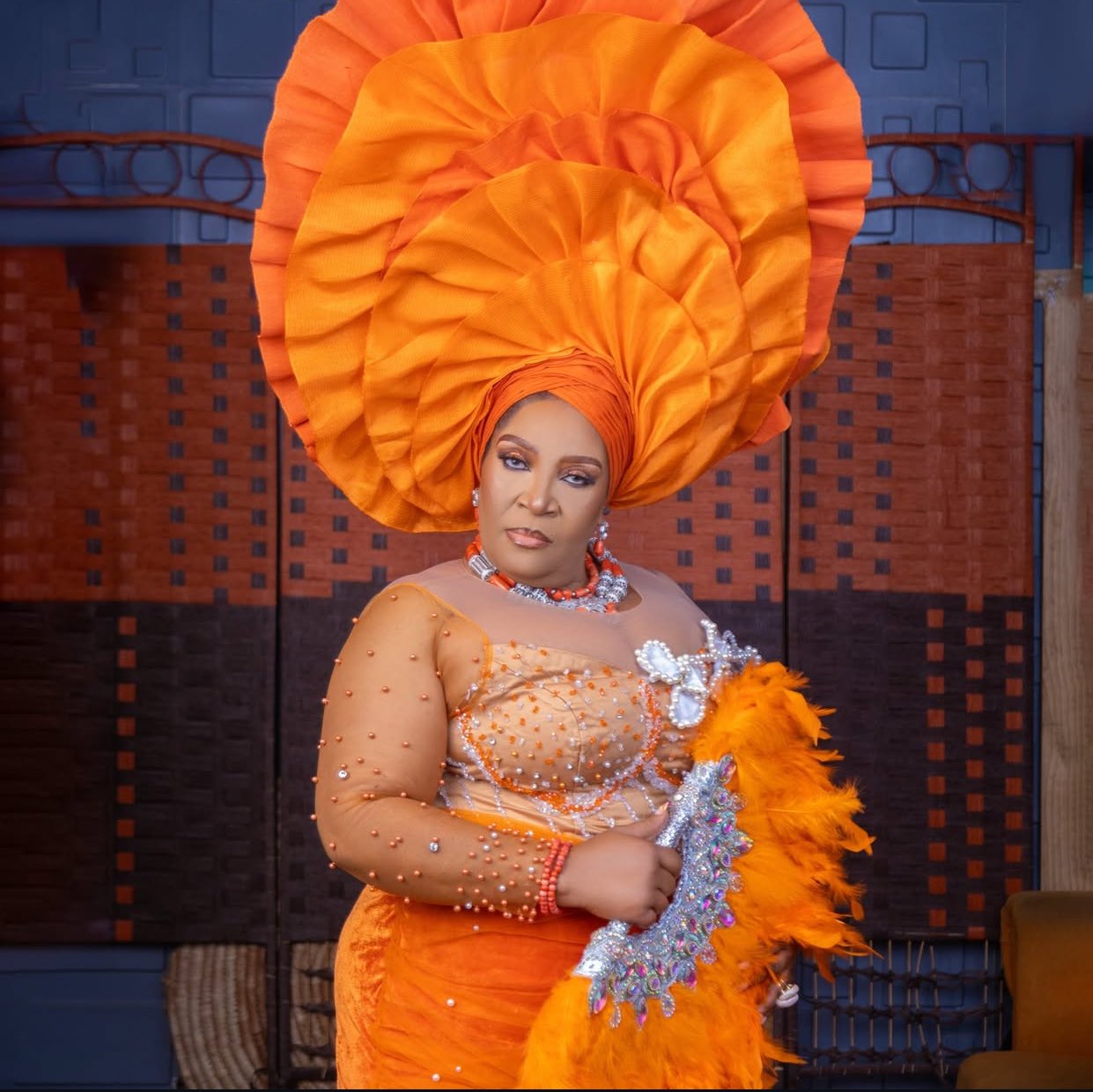
“My Husband Was a Violent Person” — Actress Ngozi Nwosu Opens Up About Her Abusive Marriage

Nollywood veteran actress Ngozi Nwosu has opened up about the dark and painful chapter of her life, revealing that she once endured a marriage marred by violence and emotional trauma. Known for her infectious smile and stellar performances in classic Nigerian television shows and films, Nwosu’s confession has taken fans by surprise and sparked widespread conversations about domestic abuse and the silent suffering many women face behind closed doors.
In a recent candid interview, the actress spoke with a rare depth of honesty about how her marriage, once filled with love and hope, quickly turned into a nightmare. “My husband was a violent person,” she said with a mixture of pain and strength, describing the terrifying reality she faced during her marriage. Her words painted a heartbreaking picture of what many women go through in the name of love, loyalty, and societal expectations.
Ngozi, who has built a successful career spanning decades in Nollywood, admitted that for years she hid her struggles from the public and even from her closest friends. According to her, she stayed silent because of the stigma attached to divorce and the pressure on women to preserve their marriages at all costs. “I was raised to believe that once you are married, you must stay and endure whatever comes,” she said. “But endurance has limits, especially when your life is in danger.”
The actress, who became a household name after her unforgettable role as Peaceful Peace in the hit sitcom Fuji House of Commotion, revealed that her husband’s violent tendencies didn’t start immediately. “At first, he was charming, loving, and everything I thought a husband should be,” she recalled. “He would shower me with affection and promise me the world. But after marriage, his true nature began to show. It started with words, insults, and controlling behavior, and then it escalated into physical abuse.”
Ngozi described how she often found herself walking on eggshells around him, afraid to speak or even breathe wrong for fear of triggering his rage. “There were nights I cried myself to sleep, wondering what I had done wrong or how I could fix things,” she said. “I thought maybe if I loved him more, he would change. But love doesn’t fix violence.”
She recounted how the abuse took a toll on her physically, emotionally, and mentally, to the point where she began to lose herself. “I wasn’t living anymore. I was just existing,” she said. “People saw me on TV smiling, playing happy roles, but deep down, I was broken. Acting became my escape. On set, I could be anyone else but myself.”
Eventually, Ngozi found the courage to leave the marriage — a decision she said saved her life. “It wasn’t easy to walk away. Society makes you feel like a failure when your marriage ends. I faced judgment, gossip, and even ridicule. But I told myself that it’s better to be alive and single than to die in silence,” she said.
Her revelation has struck a chord with many fans and colleagues who have taken to social media to express their support and admiration for her bravery. Many praised her for using her platform to speak out and give hope to women trapped in abusive relationships. Some even shared their own stories of survival, inspired by Ngozi’s openness.
Nwosu’s story also sheds light on a broader issue that continues to plague many Nigerian women — the normalization of domestic abuse and the culture of silence that surrounds it. Despite increasing awareness and advocacy, domestic violence remains a deeply rooted problem in many homes. Victims often find themselves isolated, blamed, or discouraged from seeking help due to fear of societal judgment or economic dependence on their abusers.
Ngozi spoke passionately about the importance of breaking the silence and empowering women to speak up. “I know there are many women out there going through what I went through,” she said. “To them, I say — please, speak out. Don’t let anyone convince you that suffering is love. Love is not supposed to hurt. If someone loves you, they won’t raise their hand against you.”
She also expressed gratitude for the people who stood by her when she finally decided to leave. “I had friends who encouraged me, who told me I deserved better,” she said. “And I thank God for giving me the strength to start over. It wasn’t easy, but I am here today — alive, stronger, and happier.”
Ngozi Nwosu’s courage to revisit her past pain comes years after she also battled serious health challenges that nearly claimed her life. The actress, who has survived both personal and physical storms, said her experiences have made her more determined to use her voice for good. “God kept me alive for a reason,” she said. “If my story can save one woman, then it’s worth telling.”
The actress’s revelation has also reignited discussions within Nollywood about the pressures celebrities face to appear perfect despite personal struggles. Her story serves as a reminder that fame, wealth, or success does not shield anyone from life’s harsh realities. “People see us on screen and think our lives are perfect,” Ngozi said. “They forget that we are humans too, and we go through pain just like everyone else.”
Many fans have since called for stronger support systems for women in abusive marriages, including counseling, legal aid, and safe shelters. Activists have also urged the government to strengthen laws against domestic violence and ensure victims receive justice without fear or intimidation.
For Ngozi, sharing her story is not just an act of healing but a call to action. She said she hopes to launch an initiative in the future to support women who are victims of domestic violence, helping them rebuild their confidence and start new lives. “No woman should ever feel trapped or hopeless,” she said firmly. “If I could find my strength again, so can you.”
As the world reacts to her emotional confession, one thing remains clear — Ngozi Nwosu’s bravery is inspiring a new wave of conversations about love, abuse, and the courage to walk away. In an industry and society where many still hide their pain to protect their image, her honesty stands as a powerful reminder that silence kills, but truth heals.
Through her words, she has not only unmasked the pain behind her once-glamorous façade but has also given countless others the permission to speak, heal, and choose life over abuse. “My husband was a violent person,” she said — a sentence that may sound simple, but behind it lies years of pain, survival, and ultimately, triumph.
Ngozi Nwosu is no longer the woman who cried behind closed doors. She is the woman who rose, spoke, and reminded the world that strength isn’t in how much pain you can endure — it’s in finding the courage to walk away and tell your story.


